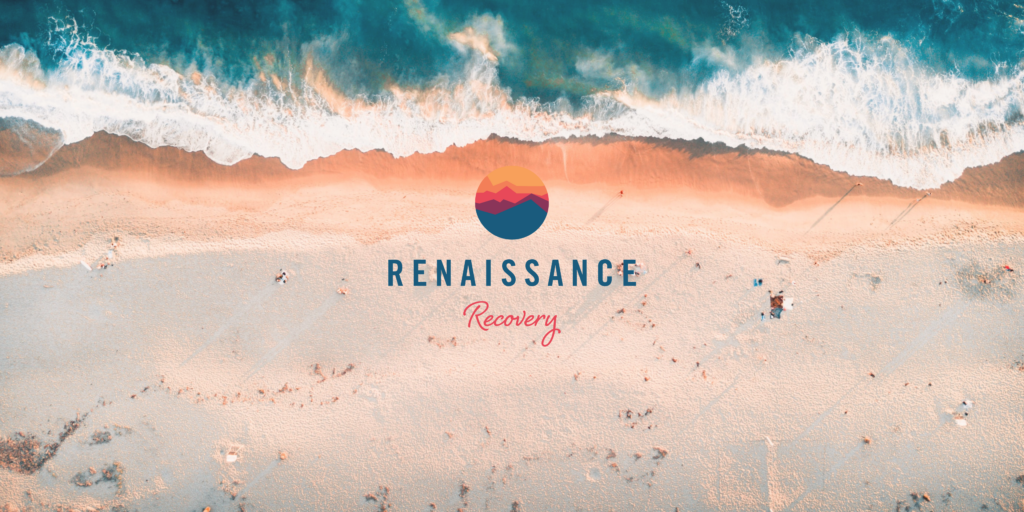Feeling apprehensive about seeking treatment for addiction? You’re in good company. Among the 48 million people battling substance use disorders in the United States in 2022, a staggering 38 million failed to engage with treatment. Oftentimes, this hesitation stems from fear – fear of judgment from others, concern over the impact on everyday life, or a generalized fear of stepping into the unknown. Read on to discover why there’s no need to be scared of going to rehab, and find out how to connect with compassionate and effective care.
Why Rehab Can Feel Scary
While everyone has a unique experience of addiction, there are some common concerns that prevent people from reaching out for the treatment they need. These include:
Need help getting addiction treatment?
- The challenge of time commitment: Many people worry that they cannot afford to take time off for rehab, fearing complications in their personal or professional lives. That said, neglecting addiction treatment may lead to more severe losses in these areas. Addressing addiction early can simplify treatment and minimize the damage caused by substance abuse.
- Fear of withdrawal symptoms: The prospect of withdrawal is daunting, but specialized treatment programs are designed to ease both physical and psychological discomfort during detox. With 24/7 medical support and prescribed medications available to mitigate symptoms, the process is made safer and more bearable, allowing for full focus on recovery without the fear of withdrawal.
- Anxiety over failure or relapse: Many people fear that previous relapses doom future attempts at recovery. However, understanding triggers and utilizing support networks increases the chances of long-term sobriety. Every person’s journey is unique, and setbacks do not dictate the future – with the right support, overcoming addiction is entirely possible.
- Worry about successful recovery: While it might sound unusual, succeeding in recovery can also be a source of anxiety for some people. Successful recovery means making significant life changes and moving into the unknown. A supportive community and a robust network can help people deal with these changes, though, setting a foundation for a smooth transition to sobriety and the many benefits it brings.
- Financial stress: The cost of rehab can be a significant barrier for many people. However, many treatment centers accept insurance and offer payment plans, making treatment more accessible. Investigating insurance coverage and exploring scholarship options can provide solutions to financial hurdles, making the path to recovery feasible for everyone.
- Fear of judgment: Worrying about how others perceive you can be a barrier to seeking help. Remember, recovery is about honesty and improvement, not maintaining appearances. Those who understand addiction know that it’s a chronic condition and admire the courage it takes to seek help.
- Feeling different from others: Believing that your situation is unique can isolate you and deter you from seeking help. Recognize that while everyone’s journey is individual, the commonalities among those struggling with addiction far outweigh the differences. Embracing support from others who have walked a similar path can be incredibly empowering and supportive.
By confronting these fears directly and seeking support, the journey to recovery can begin based on understanding and readiness for the challenges and triumphs that lie ahead.

Helpful Reminders About Getting Help for Addiction
Here are some things to keep in mind as you consider or take steps toward recovering from drug addiction or alcoholism:
You are not alone
Millions of people have walked this path before you and found a way through their addiction. There’s a global community ready to support and share their experiences with you.
Recovery is possible
No matter how overwhelming the journey seems, recovery is always possible. Many people have overcome their addictions and rebuilt their lives.
Fear is normal
It’s natural for a person to feel scared or uncertain about the unknown. Keep in mind, though, that it’s also normal to be vulnerable and express these fears. Facing them is a significant first step on the road to recovery.
Help is available
From local support groups to inpatient and outpatient rehab facilities, a range of resources is available to help you through the recovery process. Don’t hesitate to reach out for the help you need. This is a sign of strength rather than weakness.
Treatment is personalized
Addiction treatment is not one-size-fits-all. Programs are tailored to meet your specific needs and circumstances, ensuring that you receive the most effective support.
Focus on one day at a time
Recovery is a journey, not a race. Take each day as it comes, and celebrate your progress, no matter how negligible it might seem.
Your past doesn’t define you
Your history with addiction is just one part of your story. Recovery offers a chance to redefine your life and your identity beyond your addiction.
Support is integral to recovery
Surrounding yourself with a supportive network of friends, family, and professionals can significantly enhance your recovery experience and chances of success.
Prioritize your health at all times
Recovery involves healing on multiple levels, including addressing underlying issues that may have contributed to the addiction. Prioritize your mental and physical health throughout the recovery process.
How Do I Overcome My Fear of Going to Rehab?
Overcoming the fear of going to rehab is a significant obstacle for many people. Here are some practical steps and resources to help you deal with these fears and take the first steps toward initiating long-term recovery from addiction:
- Reach out to our addiction hotline: Start by calling our addiction hotline at 855-701-0479. Our compassionate team is available to listen, provide support, and answer any questions you may have about rehab and recovery. Our addiction hotline is a confidential and judgment-free way to begin addressing your concerns.
- Educate yourself about rehab: Fear often stems from the unknown. Educating yourself about what to expect during rehab can demystify the process and alleviate some of your fears. There are many online resources, including guides and personal stories, which can offer insight into life during and after rehab.
- Speak with people in recovery from addiction: Talking to people who have successfully gone through rehab can provide a realistic perspective on the process and its challenges. Hearing about their experiences and how they overcame their fears can be inspiring and reassuring.
- Consider counseling or therapy: Sometimes, discussing fears with a professional therapist or counselor can help. They can offer strategies to manage anxiety and fear, and they can provide a safe space to express and work through your feelings.
- Join a support group: Support groups like AA (Alcoholics Anonymous) or NA (Narcotics Anonymous) can be beneficial for many people in addiction recovery. Meeting others who are facing similar challenges can make you feel less isolated and more understood.
- Write down your fears and concerns: Sometimes, putting your fears on paper can help you see them more clearly and consider them more objectively. This can also be a helpful tool to discuss your concerns with others.
- Set small and achievable goals: Breaking down the process into smaller steps can make going to rehab seem less overwhelming. Focus on one step at a time – making a phone call or attending a single meeting, for instance.
- Seek support from loved ones: Share your thoughts and fears with trusted friends or family members. Their encouragement and understanding can bolster your confidence and willingness to seek help.
- Explore different rehab options: Knowing that there are various types of rehab programs with different approaches can ease your fear. Whether it’s inpatient, outpatient, or a specific therapeutic approach, finding a program that feels right for you can reduce apprehension.
FAQs
I’m scared to go to rehab for the second time, what do I do?
Feeling apprehensive about returning to rehab is normal, but the process should be viewed as a positive step. Reach out to support networks, including friends, family, or healthcare professionals, who can provide encouragement and remind you of the strength it takes to seek help after relapsing. Reflecting on the reasons for your return can also help in mentally preparing and reaffirming your commitment to recovery.
Are most people scared to go to rehab?
Yes, it’s common for people to feel scared or anxious about going to rehab due to the uncertainties of what lies ahead, the fear of judgment, or the prospect of facing their issues without addictive substances. Acknowledging these fears and discussing them with supportive individuals or counselors can significantly alleviate the anxiety associated with starting rehab.
Are some rehabs better than others?
Some rehabs are better suited to certain people than others, depending on the quality of care, the types of programs offered, the expertise of staff, and how well the approach of the facility aligns with the person’s specific needs. Conduct thorough research and try to visit facilities to find the one which offers the best chance of success for you or your loved one.

Call Our Confidential & Friendly Recovery Specialists Today for Addiction Help
If you feel that you would benefit from evidence-based addiction treatment, reach out to Renaissance Recovery today and begin your recovery right away.
Most people who are dependent on drugs or alcohol find that supervised detoxification helps streamline the withdrawal process. We can connect you with detox centers throughout the state, enabling you to address the issue of physical dependence and prepare yourself for ongoing treatment.
At Renaissance, we specialize in the outpatient treatment of all types of addictions and mental health conditions. This allows people to meet their everyday commitments without neglecting their recoveries. All addictions are unique, so treatment plans at our Huntington Beach rehab in California reflect this. Expect to access a personalized array of treatments like:
- Medication-assisted treatment
- Talk therapies
- Motivational therapies
- Family therapy
- Holistic treatments
- One-to-one counseling
- Group therapy
- Aftercare planning
Call 866.330.9449 today and begin your recovery from addiction right away.



